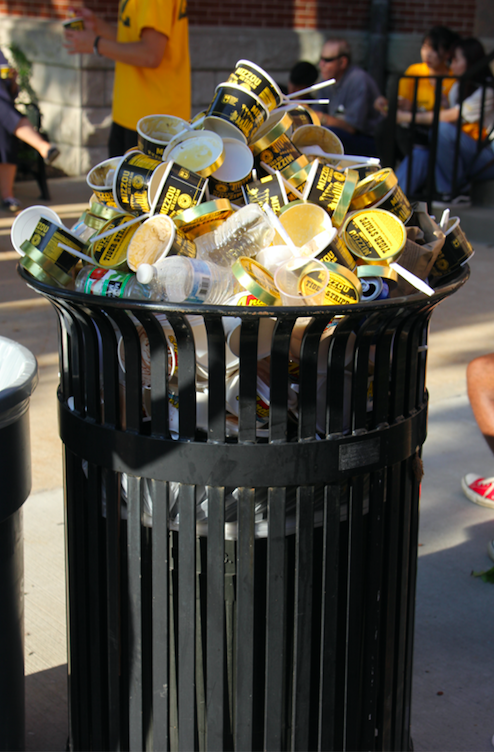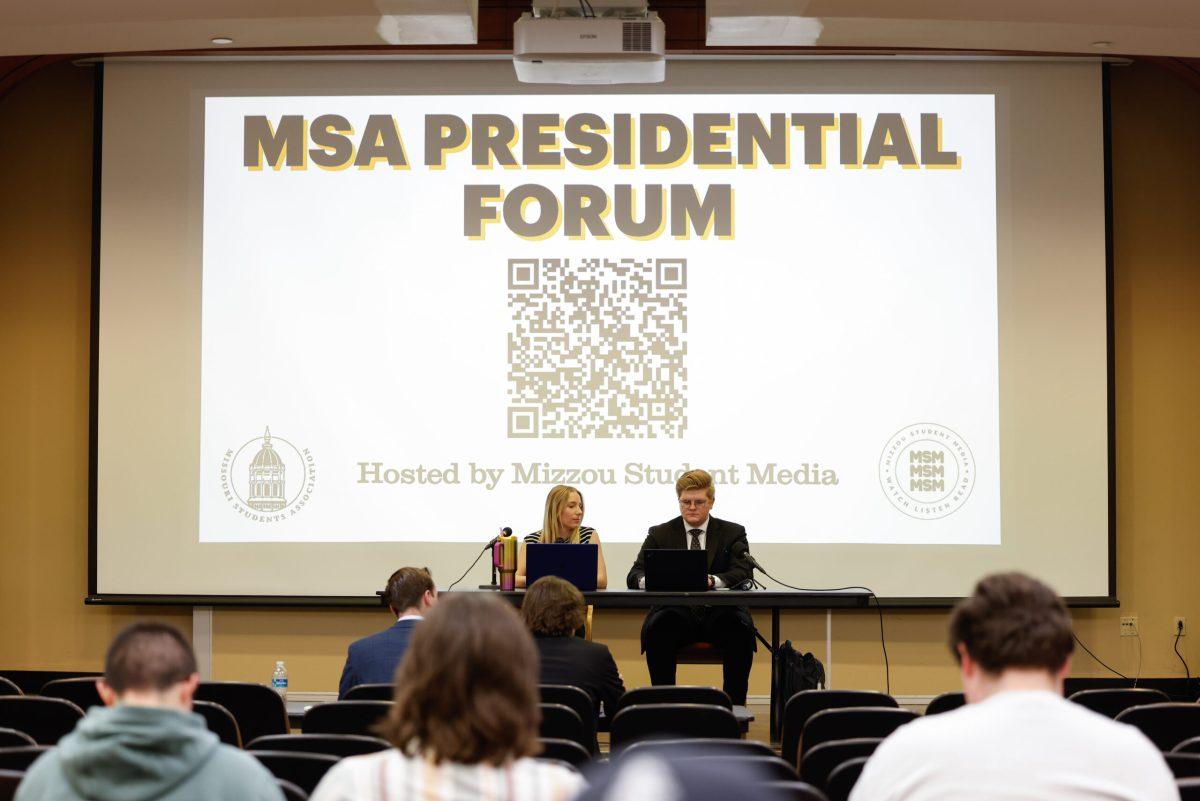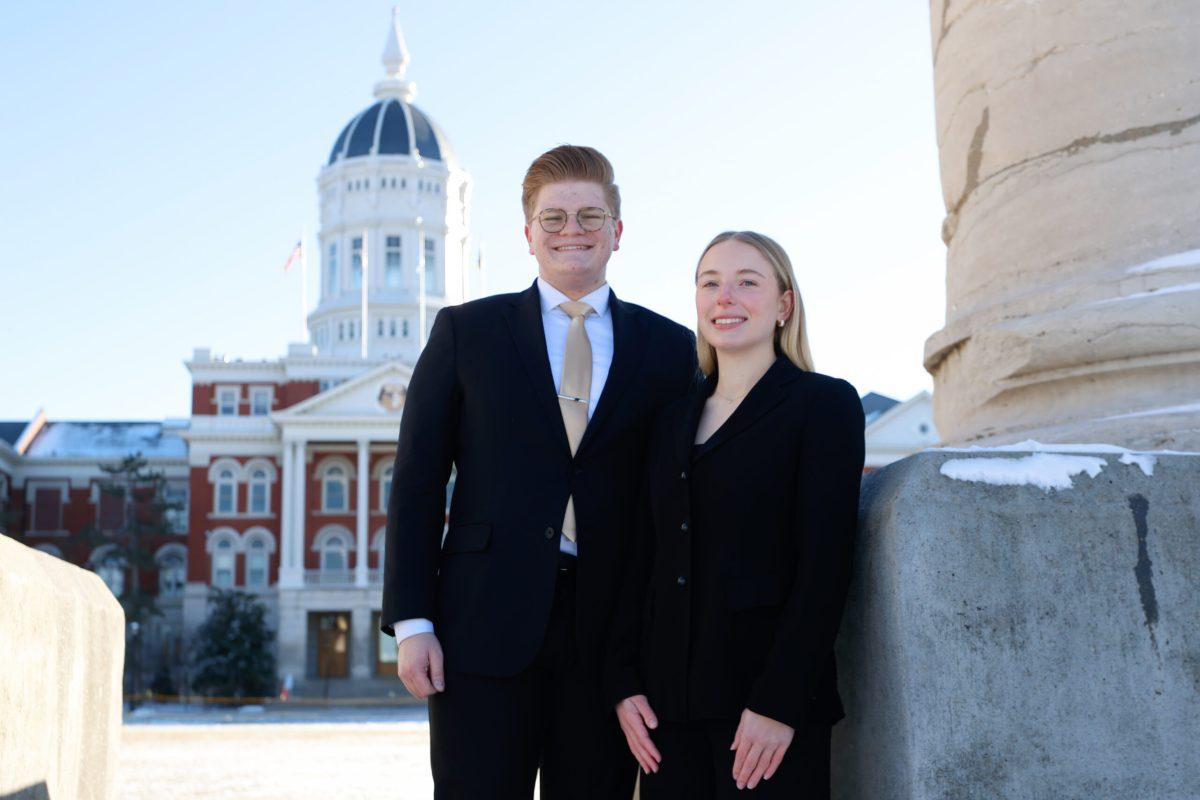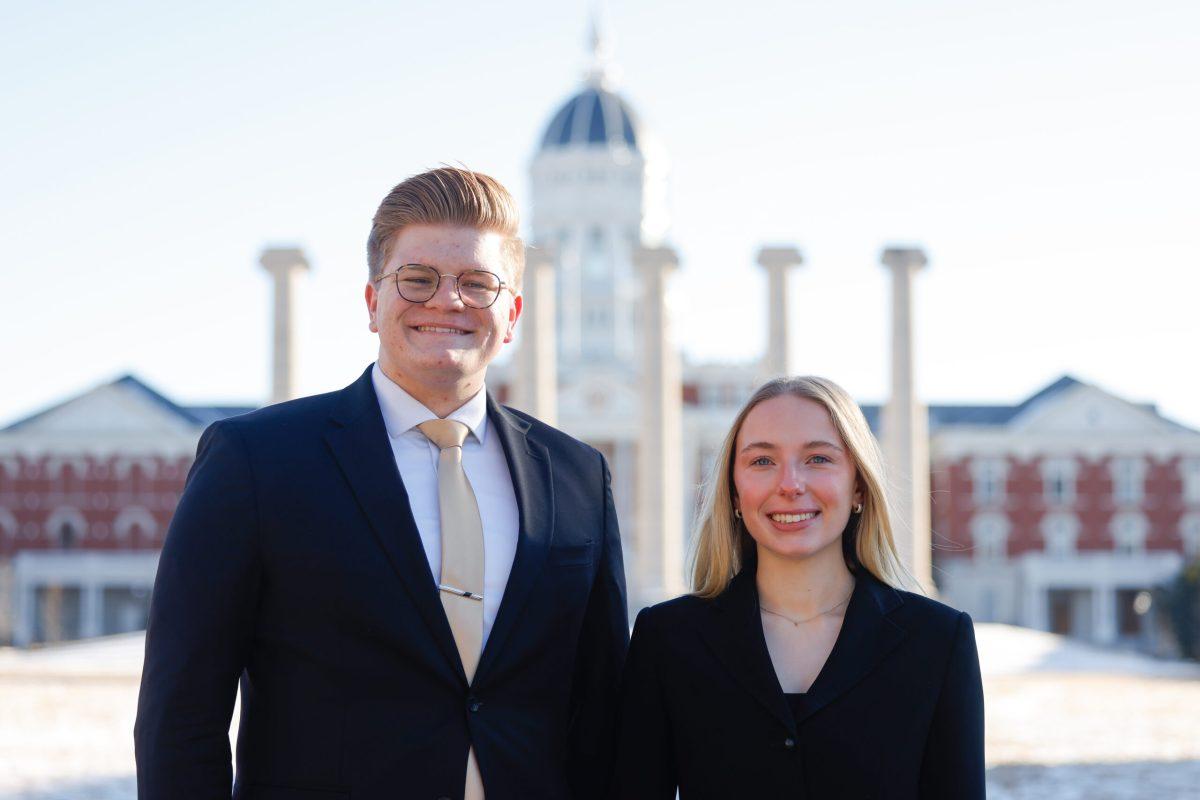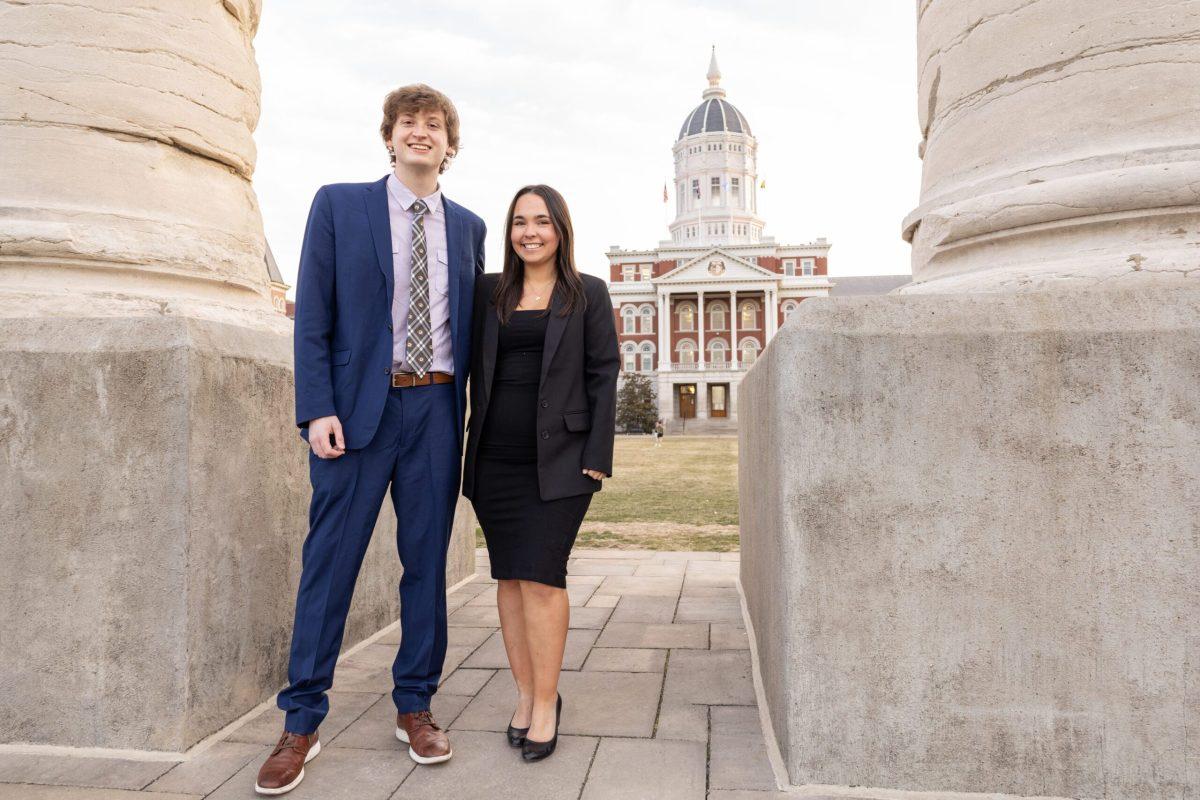While MU students and other Columbia community members were still reveling over the Tigers’ homecoming victory the day after the game, landscape services and independent contractors were occupied with something different: all the loose trash scattered around campus.
According to Karlan Seville, communications manager for the division of MU operations, the university’s solid waste team worked nearly 56 hours on trash and recycling cleanup for homecoming from Friday night through Monday.
Furthermore, Seville indicated that there were 22.5 total truckloads of solid waste and recycling collected after the game and that much of the recyclables had to be discarded due to being mixed with trash.
“We do not have the labor to separate waste from recycling,” she said. “About 25% to 30% of recycling bags were able to be recycled.”
Seville said the Facility Operations team is in charge of emptying trash cans on campus, while the landscape services staff is in charge of collecting loose trash lying around campus.
The amount of loose trash can be minimized by not putting trash in cans that are already full, as wind tends to blow the overflowing trash onto the ground.
“Any time people can put [their trash] in a secure bag they should,” she said.
Initiatives have been enacted to decrease the amount of waste left around campus after homecoming. The Sustainability Office has Tiger Tailgate, which hands out recycling bags at tailgate lots to later be collected. It also sends student ambassadors to give presentations at fraternities, sororities and residential halls about minimizing their environmental impact.
Cassandra Marks, a sophomore economics and political science double major, decided to help out with the cleanup efforts by organizing a cleanup of her own.
Marks organized this with the help of the College of Arts and Science student council, Sustain Mizzou and landscape services.
Through communicating with groundskeeping, Marks learned that the key time for cleanup is immediately after the homecoming parade and after tailgates. This allows the waste to be picked up before the wind or animals can cause an impact.
“We were able to pick up quite a bit of trash,” she said. “I think we did pretty well for our first time.”
Marks was inspired to organize the cleanup after recalling the amount of trash that was scattered outside the residence hall she lived in last year.
“[I saw] so much trash on the sidewalk and in the parking lot,” she said. “You couldn’t park without parking on top of trash.”
Tony Wirkus, director of event management, helps identify spaces where there will be tailgaters and coordinates cleanup efforts with the independent contractors who clean up around the stadium.
Wirkus said it’s important that game attendees be conscientious about making it easier on the contractors and on the university cleanup staff by taking proper precautions with their waste.
“One of the biggest things an individual can do is make sure they’re being proactive in getting recyclables to recycling containers, and, if it’s not recyclable, getting it to the correct trash can,” Wirkus said. “When someone doesn’t choose to make that choice on their own, it makes it harder and more time consuming for the cleanup staff.”
_Edited by Ben Scott | [email protected]_


